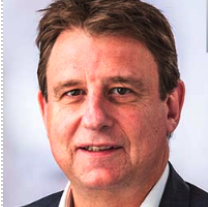Geoffrey
Hill
M.B.Ch.B.
M.D.

(206) 667-3324
Fred Hutch Cancer Center
1100 Fairview Ave. N, S2-204
Seattle, WA 98109
Photo: Fred Hutch
Education, Training, Board Certifications
- M.D., University of Auckland, New Zealand
- M.B.Ch.B., University of Auckland, New Zealand
- Internship in Medicine, Rotorua Hospital, New Zealand
- Registrar, Internal Medicine, Waikato Hospital, New Zealand
- Research Associate, Harvard University
- F.R.A.C.P., Royal Australasian College of Physicians
Clinical Expertise
- Hematopoietic stem cell transplantation
- Graft-vs.-host disease
- Hematologic malignancies
Affiliations
- Fred Hutch Cancer Center - Faculty & Lab
- University of Washington
- Fred Hutch Cancer Center - Provider
Publications
Research and/or clinical interests
Dr. Geoffrey Hill is a physician-scientist who specializes in blood stem cell transplantation. He is one of the top authorities on the transplant complication known as graft-vs.-host disease, or GVHD. In particular, Dr. Hill focuses on the immunological mechanisms initiating both acute and chronic forms of GVHD. Acute GVHD in the gastrointestinal tract is the greatest cause of transplant-related mortality while chronic GVHD is the greatest cause of illness and debility in transplant survivors. Dr Hill aims to minimize GVHD and make transplantation more tolerable to patients. He also works to reduce infection, relapse and immunological rejection of the transplanted cells. His lab research is demonstrating how cell-signaling molecules called cytokines direct immune cells that play critical roles in transplant outcomes. His team’s findings have led to new therapies for GVHD and helped establish new standards of care for transplant patients. With Fred Hutch colleagues, he is now developing methods to integrate transplantation with other forms of cancer immunotherapy like T-cell therapy. Dr. Hill also cares for patients with blood cancers like leukemia.
Dr. Hill’s work spans basic discovery research and clinical practice in the areas of donor (allogeneic) hematopoietic stem cell transplantation (HCT) and cancer immunotherapy. An author on more than 195 scientific papers, his studies have addressed the major limitations of bone marrow transplantation, namely GVHD, opportunistic infection, relapse and graft rejection. His studies of cytomegalovirus (CMV) produced the first models of CMV reactivation after allogeneic HCT that allow preclinical testing of strategies to improve anti-viral immunity. Early on, he helped demonstrate the relationship between doses of pre-transplant ‘conditioning’ therapy and GVHD, which led to the use of ‘reduced intensity’ conditioning in nearly half of all HCT performed today. His immunology laboratory especially focuses on the interactions between various ‘cytokine’ molecules, which convey signals between cells, and the multiple types of immune cells that play critical roles in HCT outcomes. They were among the first to show the immunomodulatory effects of stem cells mobilization with the growth-stimulating factor, G-CSF, and more than 80% of HCT now uses G-CSF mobilized stem cells.
Other ongoing studies focus on cytokines that might enhance the anti-tumor efficacy of HCT, focusing on interferons. These factors act upon various cell types that impact HCT outcomes and are now the focus of newer ‘immunotherapies.’ Beyond the immune ‘cytotoxic’ T cells that can attack and kill cancers, Dr. Hill studies the ‘antigen presenting’ cells that instruct donor T cells to generate immune responses to both GVHD target tissues and tumor cells in an effort to separate these detrimental and beneficial responses. His group also studies ‘regulatory’ T cells that can be used to reduce GVHD after HCT and may be modulated to improve efficacy and/or reduce toxicity after cell-based immunotherapies. Finally, Dr. Hill’s group is in the late stages of therapeutic development of strategies that inhibit an immune cell-derived factor (perforin) in order to eliminate graft rejection.



